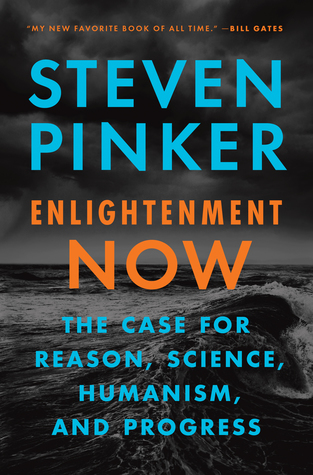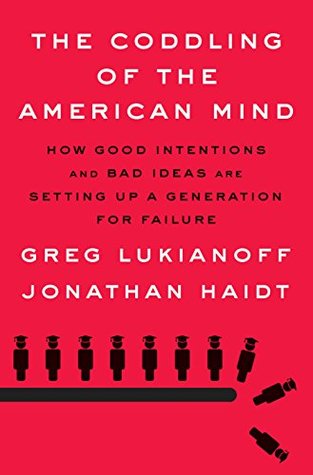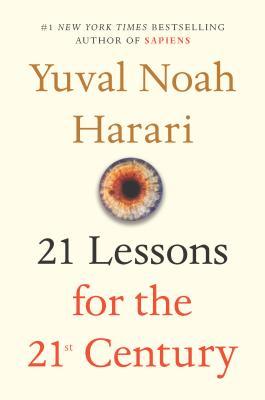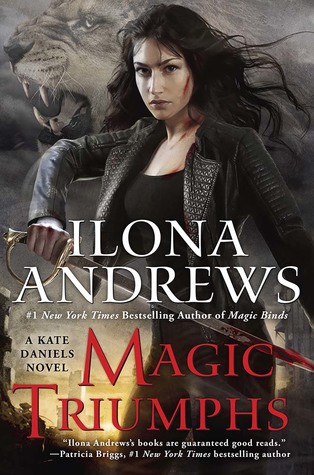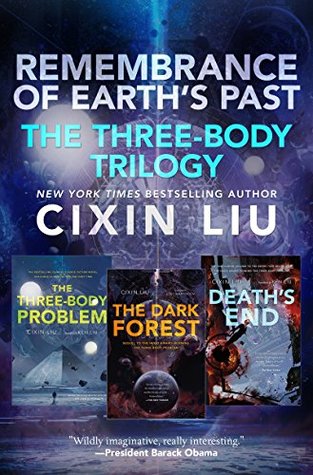My Year of Bookish Wisdom: 2018
by Miles Raymer
Introduction: Finding my Frame
With each passing year, it seems the world is digging a bigger hole for itself. Whether it’s politics, war, technological disruption, hypercapitalism, climate change, or one of so many other global ills, anyone who’s paying attention has an endless list of things to lament. Yet the sun rises. We wake up, make coffee, go to work, prepare food; the features of daily life occur and recur. I sometimes feel like I’m caught in a worldwide contradiction, maintaining little pockets of stability as the planet boils around me. But are these pockets temporary shelters that merely obfuscate the reality of impending doom, or are they the first glimmer of a new and better age just over the horizon?
Only time can answer that question, but in the meantime each of us must choose how to frame our participation in the modern moment. 2018 was a year in which I discovered how powerful it can be to cultivate a positive frame of mind in the face of uncertainty and apparent defeat. It was a year in which I turned inward, not in order to escape the world and its many problems, but as a way of reexamining what little control I have over those problems and reshaping my methods of understanding and addressing them.
My Year of Bookish Wisdom 2018: Back to Virtue
I’ve considered myself a virtue ethicist pretty much as long as I’ve been aware of that philosophical stance. Virtue ethicists acknowledge that the only thing in the universe over which we have any control is our own thoughts and actions (this position overlaps with stoicism as well). The good life, then, is achieved through an ongoing process of engagement with one’s perspectives, skills and behaviors, each of which is subject to routine scrutiny and improvement. The greatest positive impact is derived from the attempt to develop and clarify one’s mind, body and social comportment in a virtuous fashion.
I’m well aware of the limitations of virtue ethics, and even hold some beliefs that flatly contradict its central assertions. For example, I am a free will skeptic who doesn’t believe humans can choose one action over others in any fundamental way, which undermines the notion that we can choose to be virtuous. I also don’t believe that humanity’s most urgent problems can be solved by everyone agreeing on a shared definition of virtue, but instead require collective action and compromise from individuals and groups whose definitions of virtue may diverge radically. Further, I have doubts that a universally-acceptable definition of virtue is possible, although I still see a lot of potential value in trying to build one.
Despite these misgivings, I find myself returning time and again to the teachings of virtue ethics. The reason for this, I suspect, is that there is no other type of thought that better imbues my quotidian endeavors with a frisson of invigorating agency. Even though I believe this agency to be an illusion, it is an incredibly powerful illusion that produces desirable results in my life, and also in the lives of others. Each of my favorite books this year uncovered new ways to articulate and deepen my relationship with the idea of virtue.
Nonfiction:
The modern world is in desperate need of responsible optimism––a virtue that helps us press on in the face of daunting challenges. I found no better source of responsible optimism this year than Steven Pinker’s Enlightenment Now.
This wonderful and hard-hitting book pulled me out of my 2017 slump and put the spring back in my step. Through his powerful voice and a tsunami of empirical research, Pinker makes the case that Enlightenment ideals––reason, science, and humanism––have shaped modernity more profoundly than any other value systems. Because the world is still far from perfect, however, we often lose sight of the amazing progress we’ve achieved: “It’s in the nature of progress that it erases its tracks, and its champions fixate on the remaining injustices and forget how far we have come” (215). Though it should not be treated as a comprehensive assessment of our current state of affairs, Enlightenment Now is essential for readers determined to celebrate what’s worth celebrating, even as we struggle to make things even better.
Another indispensable virtue is the ability to disagree respectfully with others and seek common ground. This virtue is on full display in Greg Lukianoff and Jonathan Haidt’s The Coddling of the American Mind, which examines the disturbing ways in which “safetyism,” emotional reasoning, and tribalism are threatening American discourse and intellectual integrity.
Contrary to what this book’s title and cover might imply, Lukianoff and Haidt are not agenda-driven alarmists, but rather responsible researchers determined to bolster America’s ability to tackle big problems in a rational and respectful fashion. They show how extreme views degrade conversation and stymie progress on both ends of the political spectrum, calling for a return to “common-humanity identity politics” and a public sphere in which all parties are granted the benefit of the doubt until they’ve proven that they absolutely don’t deserve it. Lukianoff and Haidt’s “rules for productive disagreement” can help us all learn to be better interlocutors and citizens, one conversation at a time:
- Frame it as a debate, rather than a conflict.
- Argue as if you’re right, but listen as if you’re wrong (and be willing to change your mind).
- Make the most respectful interpretation of the other person’s perspective.
- Acknowledge where you agree with your critics and what you’ve learned from them. (240)
I’ve been publishing these annual Bookish Wisdom essays for four consecutive years now, and no single author has dominated my nonfiction lists more than Yuval Noah Harari. Among the many smart minds trying to help us earthlings understand ourselves and our world, Harari emits a particular wavelength of insight that appears completely unique to me. In his most recent book, 21 Lessons for the 21st Century, Harari sets out to help readers achieve the virtue of mental clarity: “In a world deluged by irrelevant information, clarity is power” (xiii).
Covering a vast array of topics, 21 Lessons ultimately implores us to carve out as much space as possible for learning and personal growth: “In order to keep up with the world of 2050, you will need not merely to invent new ideas and products but above all to reinvent yourself again and again” (266). Harari also argues that individuals need to assume a global identity in order to properly frame and execute collective solutions to worldwide problems:
Even on a united planet there will be plenty of room for the kind of patriotism that celebrates the uniqueness of my nation and stresses my special obligations toward it. Yet if we want to survive and flourish, humankind has little choice but to complement such loyalties with substantial obligations toward a global community. A person can and should be loyal simultaneously to her family, her neighborhood, her profession, and her nation––so why not add humankind and planet Earth to that list? True, when you have multiple loyalties, conflicts are sometimes inevitable. But then who said life was simple? Deal with it. (125)
My favorite piece of nonfiction from 2018 was Andrew Yang’s The War on Normal People. This book is an exceptional example of what can happen when a courageous individual decides to utilize personal virtues in order to serve the common good.
At the start of 2018, I’d never heard of Andrew Yang; today, he is my number one hope for America’s political future. After spending years in the private sector trying to create good jobs to mitigate the relentless automation revolution, Yang eventually realized that he was fighting a losing battle. This motivated him to launch a dark horse campaign for the Democratic presidential nomination in 2020.
Yang’s platform focuses on (1) providing health insurance for all Americans through a Medicare-for-All plan, (2) instituting a universal basic income called the “Freedom Dividend”––$1,000 per month for all citizens, and (3) restructuring how we evaluate the health of our economy, with a greater focus on humane outcomes and well-being rather than capital and economic growth. Yang is determined to help create a new America driven by what he calls Human Capitalism, which has three central tenets:
- Humanity is more important than money.
- The unit of an economy is each person, not each dollar.
- Markets exist to serve our common goals and values. (200)
If, like me, you’re searching for an inspirational movement to guide you through the Trump era, you need look no further. I strongly recommend exploring Yang’s website, reading his book, and contributing to and/or participating in his presidential campaign.
Tools for Growth:
This year, I’ve decided to include a new section of Bookish Wisdom called “Tools for Growth.” This section will highlight cultural artifacts or practices that I think are worth endorsing but that aren’t books.
The virtue of being an informed citizen is something I value highly, and in 2018 I discovered an app called Pocket that greatly increased my ability to gather and consume high-quality information.
Pocket allows users to store add-free versions of online articles on a reading list inside the app, and also has a text-to-speech feature that can essentially convert any article into a podcast. Within a week of my best friend introducing me to this app, my non-book reading/listening habits had completely changed. I abandoned all the podcasts I wasn’t absolutely devoted to and started listening to articles instead. This provided me with a much broader knowledge base and fixed a gap in my media consumption by facilitating audio access to long-form journalism. Additionally, I now use Pocket’s text-to-speech feature as a proof reading aid for my reviews and essays.
The cultivation of virtue can get quite exhausting, and sometimes I just need to unwind with a good album. This year I spent a lot of time listening to Courtney Barnett, an exceptional singer-songwriter from Australia.

Barnett has a solid sound rooted in pop but augmented with a psychedelic tinge, and her well-crafted lyrics are as blunt as they are poignant. My father described her as a rebirth/remix of Lou Reed/James Mercer/early Van Morrison/The Doors, which seems about right. Personally, she reminds me of Jenny Lewis’s early solo work and the albums she did with Rilo Kiley. But really Barnett is doing her own special thing, perfect for helping anyone reflect on the relationship between our mundane experiences and our existential anxieties. Interested listeners should start with the album Sometimes I Sit and Think, and Sometimes I Just Sit, specifically the beautiful track “Depreston.”
In September, I had the good fortune to attend a live discussion between Yuval Harari and Sam Harris in San Francisco. I was completely unprepared for the impact of sitting in a sold out theater with thousands of people eager to contemplate and confront humanity’s most distressing problems. This experience, along with Harari’s most recent book, motivated me to begin meditating as a way of wresting clarity from the mind’s chaos.
Although I don’t always use it, my main tool for guided meditation is Sam Harris’s Waking Up app.
The Waking Up app provides subscribers with an initial course of 50 guided meditations, which are then supplemented by a recurring meditation that updates daily. It also has a section called Lessons––short audio essays that explore Harris’s approach to meditation and other aspects of his philosophical outlook. Bringing this app into my life has made virtue more attainable by lowering my levels of frustration and anger, increasing my ability to calmly deal with unforeseen obstacles, and bringing more gratitude into my life. Recommended sample lesson: The Lessons of Death, Part One.
Okay, let’s get back to books!
Fiction:
I’m not a big fan of the idea that discontentedness is a kind of virtue, but there’s no doubt that being dissatisfied with the state of the world or one’s place in it is a key component of progress. Aldous Huxley’s Brave New World is a good reminder of this timeless truth, as well as one of the best and most prescient works in the history of science fiction.
In the wake of listening to an impressive Intelligence Squared debate in late 2017, I decided to revisit Huxley’s classic, which I’d first read back in my senior year of high school. I was struck by how topical this book still proves after nearly a century (which is more like 500 years in the scifi world), and also by the ways in which it is undeniably dated. Despite Huxley’s awkward determination to romanticize suffering through his protagonist John the Savage’s obsession with “the right to be unhappy,” this novel persists as perhaps our best example of an imagined future that is equal parts dystopia and utopia––or maybe neither (240).
The older I get, the more I believe that being a good friend is one of the most important and also most neglected of the virtues. The endless demands of modern life, coupled with the inherent difficulty of maintaining deep friendships over time, make being a good friend a particular challenge. Illona Andrews’s Kate Daniels series, aside from being the best fantasy series I’ve ever read, is a master class on friendship-building and gritty collaboration in the face of catastrophe.
In 2018, eleven years after publishing the first in the series, Andrews brought Kate’s story to a close with Magic Triumphs, and boy was it everything I’d wished for! This series is to my adult self what Harry Potter was to my teenage self––a magical journey built on a solid foundation of liberal, humanist values. Watching Kate transform from an isolated, cynical mercenary into a embedded, hopeful wife and mother with a logical family worth fighting for was gratifying and inspiring.
One of my explicit reading goals for 2018 was to read more books by authors of color, and the one with which I fell most in love was Richard Wright’s Black Boy. This memoir of growing up black and poor in early 20th-century America took my breath away with its emotional impact and moral fortitude.
Black Boy is the kind of book that I couldn’t stop quoting when I sat down to write my review, both because Wright’s prose is so impeccable and because my ability to comment on his personal narrative seemed flimsy and inadequate. So I’ll just reproduce my two favorite passages here:
I was going through a second childhood; a new sense of the limit of the possible was being born in me. What could I dream of that had the barest possibility of coming true? I could think of nothing. And, slowly, it was upon exactly that nothingness that my mind began to dwell, that constant sense of wanting without having, of being hated without reason. A dim notion of what life meant to a Negro in America was coming to consciousness in me, not in terms of external events, lynchings, Jim Crowism, and the endless brutalities, but in terms of crossed-up feeling, of psyche pain. I sensed that Negro life was a sprawling land of unconscious suffering, and there were but few Negroes who knew the meaning of their lives, who could tell their story. (267)
I feel that for white America to understand the significance of the problem of the Negro will take a bigger and tougher America than any we have yet known. I feel that America’s past is too shallow, her national character too superficially optimistic, her very morality too suffused with color hate for her to accomplish so vast and complex a task. Culturally, the Negro represents a paradox: Though he is an organic part of the nation, he is excluded by the entire tide and direction of American culture. Frankly, it is felt to be right to exclude him, and it is felt to be wrong to admit him freely. Therefore if, within the confines of its present culture, the nation ever seeks to purge itself of its color hate, it will find itself at war with itself, convulsed by a spasm of emotional and moral confusion…Our too-young and too-new America, lusty because it is lonely, aggressive because it is afraid, insists upon seeing the world in terms of good and bad, the holy and the evil, the high and the low, the white and the black; our America is frightened of fact, of history, of processes, of necessity. It hugs the easy way of damning those whom it cannot understand, of excluding those who look different, and it salves its conscience with a self-draped cloak of righteousness. Am I damning my native land? No; for I, too, share these faults of character! (272-3)
If the last two years of the American political nightmare have taught us anything, it’s that, despite significant progress since Wright’s day, America still has a long way to go if we want to become a place that people of all colors and creeds can truly call home.
Throughout my time as an amateur book reviewer (about five years now), I’ve realized that my love of books can yield negative results for my integrity as a critic. I tend to fall in love with certain stories and gush too much, and then later wish I’d been more level-headed in my assessment. I’ve tried to counter this tendency by being stingier with my five-star (10/10) ratings, but there just seem to be so many amazing books out there that I still struggle to hold back. Conversely, I sometimes have allergic reactions to books and crank out vicious, bitter reviews, and then wish later that I’d been more generous.
I’m hoping that this dynamic will improve as time and experience wear me down, but for now I’m stuck with the overblown but sincere feeling that Cixin Liu’s Remembrance of Earth’s Past trilogy was not only my favorite read of 2018, and not only the best work of science fiction I’ve ever read, but perhaps also the best story I’ve read in my whole life.
The scope of this trilogy is so massive that it’s difficult to summarize, but at its core Remembrance is a meandering meditation on the existential imperative faced by all living things: evolve or die. Liu shines the spotlight of his limitless imagination on this predicament from a staggering number of perspectives, proving that an emotionally-rich and epic narrative need not adhere to traditional conventions of story structure and character development. This remarkable trilogy is a sui generis accomplishment that courageously explores “the journey that must be made by every civilization: awakening inside a cramped cradle, toddling out of it, taking flight, flying faster and farther, and, finally, merging with the fate of the universe as one” (Death’s End, 597).
Conclusion: Virtue and Problem-Solving
When I reflect on how Remembrance of Earth’s Past affected my perspective on life, Liu’s tale seems to have a lot more to say about survival than about virtue. And while there are plenty of situations in which our survival instinct destroys our capacity for virtue, I’ve also come to believe that these two objectives aren’t nearly as oppositional as I once thought. Survival can’t be achieved without constant problem-solving, and problem-solving is an indispensable tool not just for staying alive, but for flourishing, for creating the conditions in which virtue can blossom.
Being virtuous doesn’t necessarily produce good problem-solving skills, and good problem-solving skills don’t necessarily produce virtue. But when these two qualities coalesce in the same person, that person can have a disproportionately positive influence on fellow humans and the surrounding environment. I’m not convinced I’m that kind of person, or that I could ever be. But everyone needs a goal to keep them hungry for tomorrow, and looking ahead to 2019, this one’s mine.
